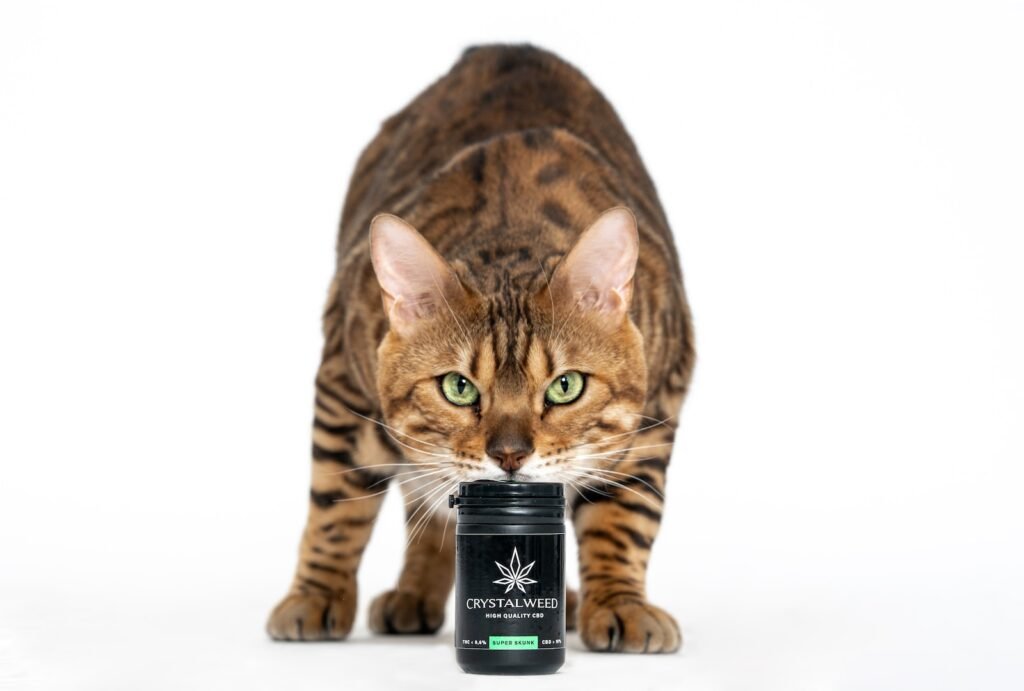The importance of regular veterinary check-ups for your cat’s well-being.
As any cat owner knows, our feline friends hold a special place in our hearts. They’re more than just pets – they’re family members! As such, it only makes sense that we want to ensure their well-being and happiness for as long as possible. That’s why regular veterinary check-ups are crucial for your furry companion’s health.
Like humans, cats can suffer from a variety of illnesses and conditions that may not be immediately apparent without the trained eye of a veterinarian. In this blog post, we’ll explore the importance of scheduling routine check-ups for your cat and sharing tips on how you can ensure your beloved pet lives its best life.
What is a Veterinary Check-Up?

A veterinary check-up is an essential part of maintaining your cat’s health and well-being. During a visit, your veterinarian will examine your cat’s overall health and temperament, as well as review their medical history and current medications.
This important routine can identify potential problems early on and allow for proper treatment before they become serious. It’s also important to remember that regular veterinary check-ups are not just for cats; dogs also benefit from this routine. By having a veterinarian monitor their overall health and activity, you can ensure that your pet remains safe and happy.
What to Expect at a Veterinary Check-Up
A veterinary check-up is an important part of maintaining your cat’s health and well-being. During a veterinary check-up, your veterinarian will examine your cat and perform any necessary tests. These tests may include a medical history, a physical examination, and lab work. Your veterinarian may also recommend preventive measures, such as vaccinations or deworming.
If your cat has any signs or symptoms that concern him or her, your veterinarian may order additional testing or treatment. Regular veterinary check-ups are essential for detecting early problems and helping to keep your cat healthy.
Why Have a Veterinary Check-Up?
Cats are an incredibly self-sufficient species, and as a result, they seldom need veterinary care. However, there are a few indications that your cat might require a check-up:
1] If your cat has been acting out of character – for example, becoming more aggressive or Territory marking extensively outside the195168house – it might be due to some underlying health issue that needs to be addressed.
2] Unexplained weight loss or an increase in appetite may also be symptoms of illness and should be investigated by a veterinarian.
3] Any changes in your cat’s respiratory or urinary habits should also be noted, as these could indicate something serious going on internally.
4] If your cat consistently contracts diseases that are not typically found in cats (such as conjunctivitis), it’s important to get them checked out by a veterinarian so they can determine the root cause and prescribe the necessary treatment.
Tips for Preparing for a Vet Visit

When it comes to your cat’s health, it is especially important to have regular veterinary check-ups.
Here are some tips for preparing for a vet visit:
1] Make an appointment. The sooner you can schedule a visit, the better.
2] Bring your cat’s records. This includes yourcat’s vaccinations, neutered/spayed status, and any other medical information you think may be relevant.
3] Give the vet a helpful overview of your cat’s health history. This will help them form a more accurate diagnosis and recommend the best course of treatment.
4] Ask questions! Synthesize what you’ve heard from the vet in order to get a general understanding of your cat’s condition and how to deal with it effectively at home.
The Benefits of Regular Veterinary Check-ups for Your Cat
Regular veterinary check-ups are essential for both your cat’s and your veterinarian’s safety. Many common health problems can be identified and treated early, before they become more serious. By routinely monitoring your cat’s health, you can help ensure that she stays healthy and happy.
At the doctor’s office, veterinarians will perform a variety of tests to evaluate your cat’s health andenrich her medical history. These tests may include a complete physical exam, an evaluation of vital signs (heart rate, temperature, breathing), a blood test or urine analysis, and a clinical assessment ( Symptoms such as persistent vomiting or diarrhea; stereotypes such as liking to lay near the fireplace).
Your veterinarian may also recommend surgery if there is an underlying health condition that is causing symptoms in your cat. For example, surgery may be necessary to remove a tumor or abscesses, repair a tear in the intestine, or close an Eye Canal infection.
Regular veterinary check-ups help keep cats safe by detecting and treating disease early. By providing crucial information on their overall health and well-being, regular veterinary check-ups foster positive relationships between pet parents and their furry friends .
What are the benefits of veterinary check-ups for cats?
Regular veterinary check-ups for cats can help keep them healthy and happy. They can detect early signs of illness, provide treatment if necessary, and give you valuable information about your cat’s health.
Cats are intelligent animals and often communicate their health concerns or problems through behavior or appearance. By catching problems early, veterinary check-ups can often prevent more serious illnesses from developing.
Checking a cat’s eyes may also reveal potential issues with their vision.Veterinary check-ups can also determine the extent of any dental problems, as well as examine the ears for infection or wax build-up, both of which can be difficult to diagnose on your own. Many diseases in cats originate in the mouth and nose, so detecting problems early is important for successful treatment.
Though one visit to the veterinarian isn’t going to cure every ailment your kitty suffers from, regular medical care will help keep them healthy and happy. A visit to the vet once a month can go a long way in keeping your pet healthy…and yours too .
When should you have your cat’s first vet check-up?
When should you have your cat’s first vet check-up? Regular veterinary check-ups are an important part of maintaining a healthy cat. They can help detect health problems early, and often lead to improved health for your pet.
Here are four tips for scheduling your cat’s first vet visit:
1] Have your cat examined when he or she is six months old. This is a good time to screen for common health problems, such as joint pain or abnormal vision.
2] Check in with your veterinarian every six months thereafter, to monitor changes in your cat’s health and to update them on any treatments or medications that were prescribed. It’s also a good time to discuss any new developments in their own personal lives, such as new family pets or changes at work.
3] If you notice any significant changes in the way your cat behaves, eats or appears overall, it might be a good idea to schedule an appointment with your veterinarian right away. A change in behavior could be the sign of a serious illness, while sudden weight loss could point to pancreatitis or other food-related illnesses.
4] Be sure to keep all of your cat’s medical records if you decide to adopt another one later on down the road – especially if your original cat has issues that need to be addressed by the new veterinarian (such as having a URI). Retroactively vaccinating against common diseases like leukemia can only happen if proper medical records are kept up-to-date .
What to expect during a regular vet check-up
A regular veterinary check-up can help your cat live a longer, healthier life. In fact, most cats who receive routine veterinary care are less likely to develop ill health or even die from diseases than cats who don’t receive such care.
During your cat’s annual check-up, the veterinarian will typically perform a physical examination, including a review of your cat’s vital signs (breathing and heart rates, body temperature) and report on overall health. The vet may also perform diagnostic tests (e.g., blood pressure, liver function tests) and give you advice on keeping your cat healthy.
You should expect to have these annual check-ups:
1) Year-round: Your veterinarian may recommend that your cat has an annual check-up all year round if he or she doesn’t seem to be experiencing any specific health problems at that time. This includes visits during winter when sick cats may be harder to detect and treat.
2) At least once per year: Your veterinarian may recommend having your cat examined at least once per year for breeders or other specific medical issues that might require more frequent observation (such as diabetes). However, somecats only need their annual check-up performed when they begin showing any unusual signs or if their weight changes significantly from one year to the next.
3) As needed: If there is reason to believe that your cat is experiencing an illness or has been injured, the vet will probably recommend having a special check-up (e.g., for feline leukemia).
Conclusion
As a responsible pet owner, it is important to make regular veterinary check-ups part of your cat’s routine. These check-ups can help to identify health problems early and establish healthy baseline habits for your feline friend. By doing this, you can provide them with the best possible chance at a long and happy life.







3 Comments